




Welcome to “Up Close & Personal.” For every interview I will be introducing a literary personality discussing his views and insights, as well as upcoming literary events around the world.
Today’s interview is with John McNally, he is the acclaimed author of America's Report Card, Book of Ralph which was optioned for film and anthologies including Bottom of the Ninth.
His book Troublemakers won the John Simmons Short Fiction Award, Nebraska Book Award and was a Book Sense selection.
EI: Would you share some early insight into who you were as a teenager? What were you like? Please tell us more about John McNally -- the man behind the author.
JM: What was I like as a teenager? I spent a lot of my time as a teenager being depressed; I remember that. I was probably pretty self-absorbed, too, which I suspect isn't all that unusual for being a teenager. I'd like to tell you that I was reading great books which then laid the foundation for a career as a writer, but that wouldn't be true. I rarely read anything. I was involved in a lot of extracurricular activities, most notably Drama Club, and I believe that my acting experiences actually had an impact on my writing, though I'm not sure I realized that until many years later. Writing from a chosen point of view is a lot like method acting in that both the writer and the actor must submerge themselves into a distinct consciousness and then ask him- or herself hundreds of questions about what that character would and wouldn't do. All those years I spent in high school plays didn't go unused, even though once high school was over I never had the desire to be in another play again.
EI: Do you enjoy writing? What is it about this art form that enchants you the most? Why have you chosen to write in the genre in which you write?
JM: As frustrating as writing can be, I can't think of anything else I would rather do. In fact,I'm miserable to be around when I'm not writing. For me, fiction writing allows you to do things that no other medium can really do all that well, which is to capture both the external events of the world and the internal thoughts of the narrator simultaneously. To lose yourself in a great novel is unlike any other experience, and as a novelist, I aspire to writing that kind of book, the kind where the reader forgets that he or she is reading words on a page.
EI: In what ways does your writing benefit from being a professor at Wake Forest University? Do you feel that the skills you possess inform the way you approach writing a novel and, if so, how?
JM: You can't spend eighteen years teaching fiction writing, as I have, and not learn a lot about the craft of writing. By now, I've read literally tens of thousands of pages of student writing, and I've had to think about every sentence, every word choice, every decision that went into their plots, every character that they've brought to the page. And then I write up comments on those stories, and, as a group, we talk about them in class. I've been doing this year after year. It's the sort of intensive concentration that forces me to think about storytelling in new ways, because I'm constantly seeing new examples by beginning writers, some of which work, some of which don't work.
EI: Could you describe your path that leads you to publication--any stumble along the way? Is there anything about you that you would do differently, knowing what you do now?
JM: I wrote three unpublished novels before my first book was published, and I wrote numerous unpublished short stories before my first story was published. Would I do something differently, knowing what I know now? No, not really. Failure is a necessary part of being a writer. I had to write the books and stories that didn't work to be able to write the ones that did. It's all a learning experience...and I'm still learning.
EI: Was there a central theme that you wanted readers to grasp?
JM: No, I don't write with theme in mind. I begin with characters and situations and then I see where the story takes me. I want to be surprised by what my characters do. To write with a theme in mind would probably make my writing more predictable. That's not to say that my work as a whole doesn't have recurring themes -- I'm sure they're there -- but as a writer I'm not all that interested in them. That's the critics job: to dissect the work after the fact.
EI: When you look back on your enormously successful career as an author, is there anything you would've done differently? If so, what and why? If not, how do you manage to move forward without any regrets?
JM: Well, thanks for calling my career enormously successful. I appreciate that, even though I don't think of it that way. If I were to characterize my career, I think I'd call it "modest" and "always on the brink of imploding." I'm sure I would do some things differently, but I don't ever think about that, so it's hard to answer that question. I'm always thinking about what's in front of me: the next short story, the next book.
EI: Mr. McNally, you are well known in the writing community as an award winning author, a Chesterfield Film Writer's recipient which was sponsored by Paramount and currently a professor at ‘Wake Forest University’ in North Carolina. Do you ever feel pressure or insecure, or are you able to separate all that from your own creative process?
JM: I always feel insecure. The day I feel secure is the day I should really start to worry. Maybe because I grew up in a household where we lived check to check, and where we often moved from one apartment to the next every few years, I'm always aware of the tenuousness of stability. In other words, I don't really believe in stability -- I think it's an illusion -- so I'm always expecting it all to come crashing down. I'm not fatalistic about it; I just don't take for granted that I'll have a career, writing or otherwise, from one year to the next. Even as I write this, I don't have a publisher for my next novel. I'm writing without a net.
EI: Are there any kid or teen books rocked your world while growing up? And why?
JM: As I wrote above, I didn't start reading much of anything until I was a sophomore in college. I came to reading late. I watched a lot of movies. I was obsessed with movies and, in high school, kept track of every movie I had ever seen. I liked the idea of books; I just wasn't reading them.
EI: When did you get the first inkling that your book might become wildly popular? Can you describe your feelings upon realizing this?
JM: Hm. I'm not sure any of my books are wildly popular. I wish that were the case. I mean, I'm always grateful when someone brings a book up for me to sign or when I receive a kind email from someone who's read one of my books, but like a lot of writers of literary fiction, I'm still struggling to break through to a larger audience.
EI: How do you imagine audience as you are writing? Do you try to do character development, chapter outlines, various novel-related brainstorming? Do you have sheets of newsprint covered in a story boards all over your walls?
JM: For novels, I sometimes have a very vague outline in the form of incoherent notes, mostly things I'm trying to remind myself to put in later. By and large, I dive in and see where the characters will lead me. I don't think much about audience except in very vague ways. I write books I wouldn't mind reading, so I guess my audience would be people like me, and my tastes are pretty broad. I like high-brow literature, and I like certain pulp novelists. One thing I can say is that I don't want my books to alienate anyone. I don't write for an elite group of readers. That doesn't interest me. I'm much more flattered when someone tells me that my book is one of the few books that they've read since high school that they've really liked than I am when someone with a Ph.D. from Princeton tells me that they liked my book. That's probably where my working-class roots kick in. I'd much rather be a writer for the common reader.
EI: Let’s shift gears here for a second... and let’s talk about “Hank Boyd” the protagonist in your novel The Book Of Ralph. How much of Hank’s planned out in your head? How do you know where you will go next with his character?
JM: The Book of Ralph grew out of a series of autobiographically based moments. Once I started a story, I just let Hank and Ralph take me where they wanted to take me. I had a great deal of fun writing that book, and I think (I hope) that the fun I was having comes across on the page. I wrote about half of that book in a feverish six month period, and during that time, I would barely get into one plot when another would come to mind, so I would begin that one, too. It was great fun -- a gift, really.
EI: What was your biggest challenge and obstacle while writing and creating “Hank & Ralph? Did you work them out in advance, or did they evolve as you wrote the story? Are any of the characters in the story actually based on real people in your life?
JM: The characters evolved. Hank is a little bit of my alter-ego, but he's not really me. Ralph began as a composite of three kids I knew who were like Ralph, but by the second "Hank and Ralph" story I wrote, Ralph had become his own person. There really weren't any major obstacles, except that the agent that I had when I began writing it didn't think it was commercial and wanted me to write something else. We parted ways, and I kept working on the book.
EI: How did you develop or come up with the idea of ‘When I Was a Loser?” What inspired you to write this book? What about writing for teens appealed to you?
JM: When I Was a Loser is an anthology of 25 writers writing about their teen years. I edited the book, and I contributed an essay to it as well. Since I write a lot about teens, I began to think of how other writers might approach the same subject, and then I began to think of writers whose work I admire or who have compelling voices. I put together a proposal for the book, and, fortunately, my publisher liked the idea. I write a lot about teens because it's a critical juncture in a person's life, and, as such, it lends itself to drama (both comic and serious drama). Also, there are so many universal experiences that take place during that five to six year period, so there's bound to be an audience for the subject, if it's done well. Plus, I love books like Huckleberry Finn and The Catcher in the Rye.
EI: Please tell us about 'America’s Report Card' due to be released on June 19th. Would you care to tell us about ‘Charlie Wolf & Jainey O’Sullivan’s character? Would care to share a little a bit about them? Can you give us a hint as to what it's about? What do you think readers would expect different from these two characters?
JM: The paperback of America's Report Card will be released on June 19th; the hardback came out last year. In short, it's the story of a lonely man (Charlie Wolf, who scores standardized tests for a living) and a lonely girl (high school senior Jainey O'Sullivan), who meet each other when Charlie reads Jainey's essay-answer on her standardized tests and determines that her life is in danger and that she's in need of his help. The book is a departure for me because it's also a political satire that deals with such things as the paranoia that government can instill in the individual and the thin line between fact and conspiracy.
EI: Have any of your book been optioned for film yet?
JM: The Book of Ralph has been optioned.
EI: If you were allowed total control of the Hollywood version of ‘Book of Ralph’ who would be in it? And in your opinion who do you think should direct?
JM: I would love to see Alexander Payne direct it. (He directed Election.) He's got the right sensibility for it. I honestly don't know who would be in it, though. If John Cusack was twelve and Jack Black was fourteen, I'd suggest that they play Hank and Ralph.
EI: What's up next? Is there another book in the works? What can you share with us?
JM: I just finished a collection of short stories, Ghosts of Chicago, which I hope will be out next summer, and I'm working on a new novel.
EI: Mr. McNally, thank you for contributing to my blog. It has been a pleasure for me to get to know you, and your work a little better. Would you like to end your interview with a writing tip or advice for young aspiring writers?
JM: My best advice is to write every day. Make it a habit. When you find yourself talking more about writing than writing, then you're in trouble.
To learn more about John McNally, please visit him at:
http://www.bookofralph.com/
http://www.myspace.com/writerjohnmcnally







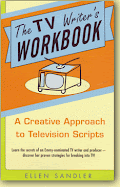



.png)



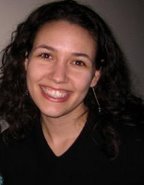
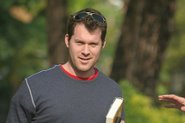


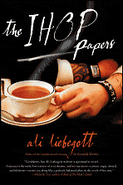
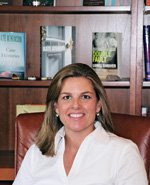
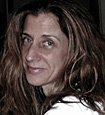
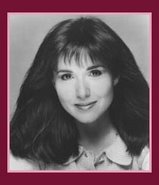
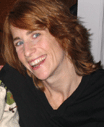


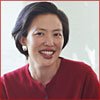


No comments:
Post a Comment